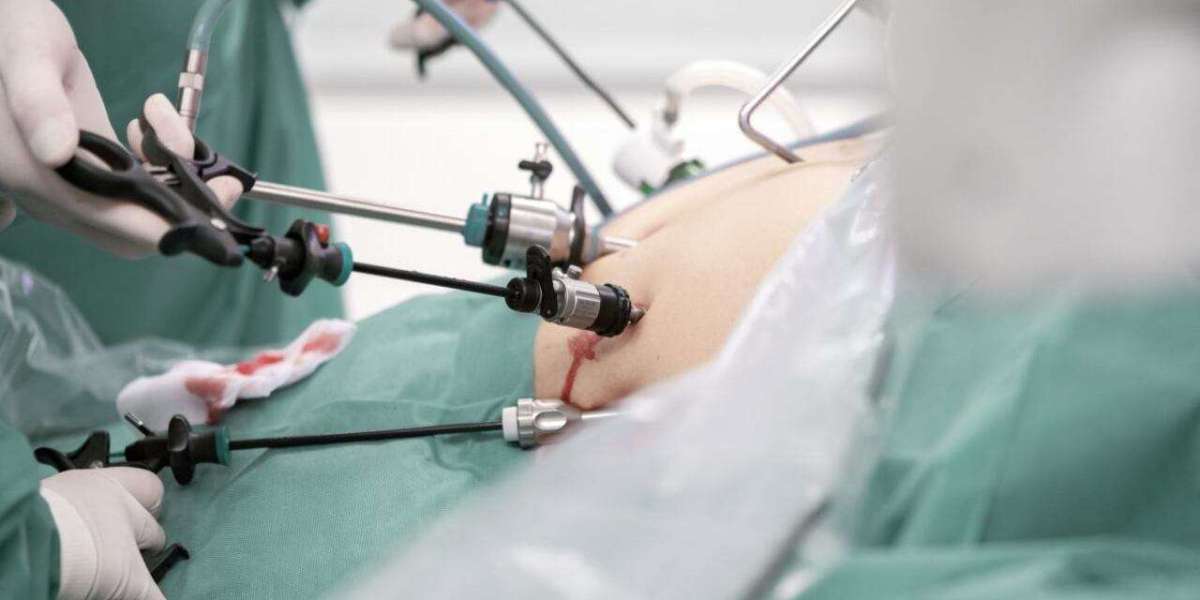Bariatric surgery is a life-changing procedure for individuals struggling with obesity and related health conditions. If you're considering Bariatric Surgery in Islamabad, it's essential to undergo a thorough pre-operative evaluation. These medical tests are crucial for determining your suitability for surgery, minimizing risks, and ensuring a smooth recovery. At facilities like SKN Cosmetics, these evaluations are performed with precision to prioritize your safety and long-term success.
Below is a detailed look at the medical tests required before undergoing bariatric surgery.
1. Complete Blood Count (CBC)
The Complete Blood Count is one of the first tests ordered during the pre-surgical evaluation. It measures your:
Red blood cells
White blood cells
Hemoglobin
Hematocrit
Platelets
This test helps identify anemia, infections, or clotting disorders that could impact surgery or healing. If abnormalities are found, treatment is initiated before proceeding to surgery.
2. Blood Chemistry Panel
This test evaluates your metabolic functions, including:
Kidney function (creatinine, BUN)
Liver function (ALT, AST, bilirubin)
Blood glucose levels
Electrolyte balance (sodium, potassium)
These values help determine how well your organs can handle anesthesia and the physical stress of surgery. Any irregularities must be addressed prior to scheduling the procedure.
3. Lipid Profile
Obesity is frequently associated with abnormal cholesterol levels. A lipid profile assesses:
Total cholesterol
LDL (“bad”) cholesterol
HDL (“good”) cholesterol
Triglycerides
Managing high cholesterol before surgery reduces the risk of cardiovascular complications during and after the operation.
4. Thyroid Function Tests
Thyroid disorders, especially hypothyroidism, are common in individuals with obesity. Thyroid Function Tests (TFTs) include:
TSH (Thyroid-Stimulating Hormone)
Free T3 and T4
If a thyroid disorder is detected, it must be managed before surgery to ensure successful weight loss and metabolic stability post-surgery.
5. Blood Sugar and HbA1c
Bariatric patients often have Type 2 Diabetes or insulin resistance. Monitoring blood sugar and HbA1c levels is essential to:
Assess diabetes control
Evaluate risk of post-surgical complications
Guide post-operative medication planning
An HbA1c above 8% typically indicates poor blood sugar control, which could delay surgery until proper management is achieved.
6. Nutritional and Vitamin Screening
Deficiencies in certain nutrients are common in obese individuals and may worsen after surgery. Your surgeon will order tests for:
Vitamin B12
Vitamin D
Iron and Ferritin
Calcium
Folic acid
These levels are corrected before surgery to reduce the risk of fatigue, osteoporosis, or neurological symptoms after bariatric procedures.
7. Liver Function and Imaging
Obesity is linked to fatty liver disease, which can affect surgical outcomes. Liver function tests and an abdominal ultrasound may be done to:
Evaluate for fatty liver (hepatic steatosis)
Rule out liver cirrhosis
Determine liver size (important during laparoscopic surgery)
If liver inflammation or enlargement is significant, your surgeon may recommend weight loss or dietary adjustments before surgery.
8. Electrocardiogram (ECG)
An ECG measures the electrical activity of your heart. It is essential for patients over 40 or those with existing cardiovascular risk factors. ECG detects:
Irregular heartbeats
Previous silent heart attacks
Other cardiac abnormalities
If necessary, a referral to a cardiologist for further testing such as a stress test or echocardiogram may be made.
9. Chest X-Ray
A chest X-ray provides a visual of your lungs and heart, helping to identify:
Lung infections
Chronic obstructive pulmonary disease (COPD)
Enlarged heart
Pulmonary fibrosis
This is especially important for patients who smoke or have a history of respiratory issues.
10. Sleep Study (Polysomnography)
Many candidates for bariatric surgery suffer from undiagnosed Obstructive Sleep Apnea (OSA), a condition that causes breathing to stop intermittently during sleep. A sleep study can:
Confirm the diagnosis
Determine its severity
Guide treatment (e.g., CPAP therapy)
Treating OSA before surgery reduces the risk of complications with anesthesia and improves recovery.
11. Upper GI Endoscopy or Barium Swallow
An upper gastrointestinal (GI) study or endoscopy is sometimes required to examine:
The esophagus, stomach, and upper intestine
Presence of ulcers, tumors, or inflammation
Hiatal hernias or acid reflux (GERD)
Understanding the condition of the digestive tract helps your surgeon decide the most suitable bariatric procedure.
12. Psychological Evaluation
Mental preparation is as crucial as physical readiness. A psychological assessment helps determine if the patient:
Understands the procedure and its implications
Is mentally prepared for lifestyle changes
Has a support system in place
Suffers from eating disorders, depression, or anxiety
This evaluation is essential for ensuring long-term success and identifying individuals who may benefit from counseling before or after surgery.
13. Pregnancy Test
For women of childbearing age, a pregnancy test is mandatory. Bariatric surgery is not performed during pregnancy, and women are advised to delay conception for at least 12–18 months post-surgery due to nutritional concerns.
Preparing for These Tests
Here are a few tips to prepare for your pre-operative tests:
Fasting: Some tests, such as blood glucose or lipid profile, require fasting for 8-12 hours.
Medication List: Bring a list of all medications, including over-the-counter drugs and supplements.
Medical Records: Share any relevant medical history or documents with your surgical team.
Hydration: Drink plenty of water unless fasting is required.
What Happens After Testing?
After your tests are completed:
Your medical team will review the results.
If all parameters are within acceptable ranges, surgery is scheduled.
If there are concerns, your team will address them first through treatment or lifestyle changes.
This process ensures that your body is fully prepared for the demands of surgery and recovery.
Conclusion
Undergoing bariatric surgery is a significant step toward better health, but preparation is key to ensuring a safe and successful experience. The medical tests required before surgery offer a comprehensive picture of your health, allowing your surgeon to minimize risks and tailor the procedure to your needs.
If you’re considering Bariatric Surgery in Islamabad, it’s important to choose a clinic that prioritizes patient safety and personalized care. SKN Cosmetics clinic offers thorough pre-operative assessments, expert surgical teams, and holistic post-op support, making it one of the most trusted destinations for bariatric care in Pakistan.



